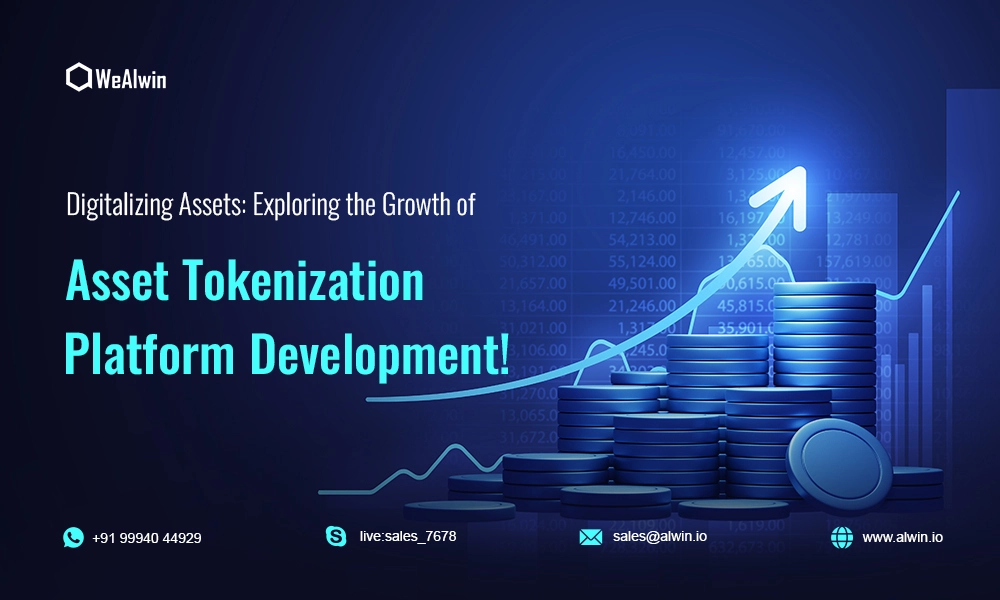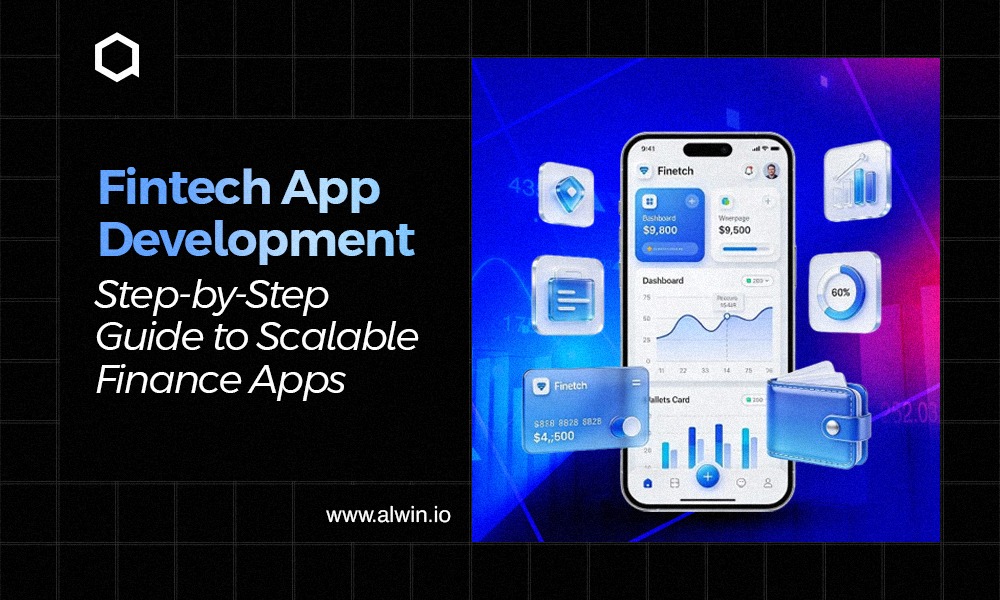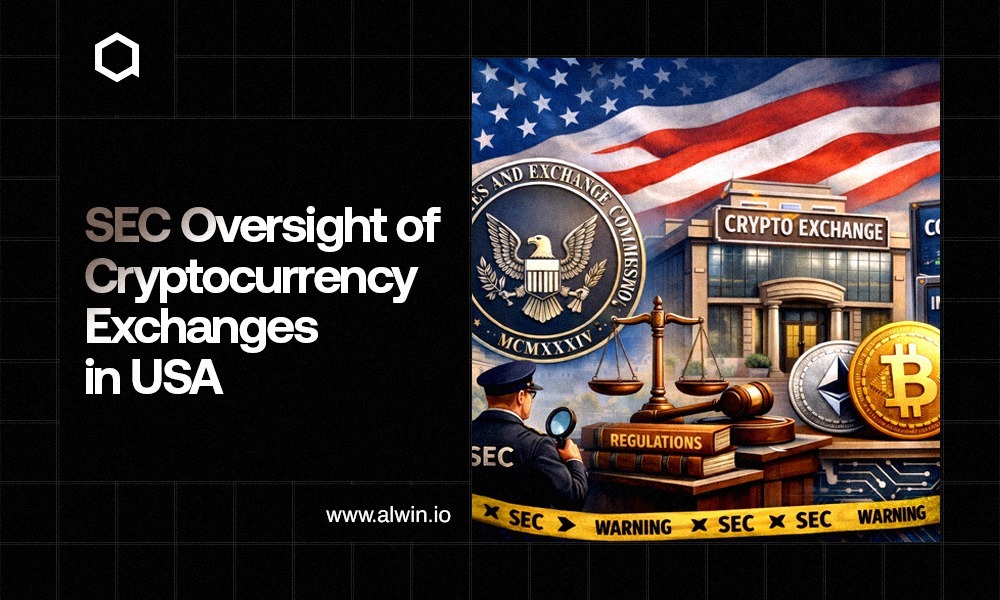Entrepreneurs Alert!
Come with another concept! Are you a Token Enthusiast & heard of Asset Tokenization? If you heard this but don’t know how to invest in it?
Then, this is the blog explaining all your questions on Asset Tokenization!
Greetings from the world of Asset Tokenization, where traditional assets are undergoing a digital transformation, creating exciting opportunities for investors and businesses. Asset Tokenization is a process that involves converting real-world assets, such as Real Estate, Artwork, Stocks, and even Intellectual Property, into Digital Tokens on a blockchain network. These tokens represent ownership or shares of their underlying asset, making it easier to fractionalize ownership, trade, and transfer assets.
What is Asset Tokenization?
What is the concept of Asset Tokenization? Asset tokenization is fundamentally about leveraging blockchain technology that brings more liquidity, accessibility, and transparency to formerly illiquid assets. It enables the fractional ownership of valuable assets and opens up investment opportunities to a wider audience. By digitizing the assets, we move away from the traditional, challenging procedures of buying and selling, which involve intermediaries, paperwork, and high fees.
Types of Asset Tokenization
ICO Token Platform: An ICO (Initial Coin Offering) platform facilitates fundraising for new cryptocurrency projects by issuing and distributing tokens to investors, allowing people to take part in the project's growth and even profit from it.
Asset Tokenization Platform: This platform converts real-world assets (such as real estate, art, or commodities) into digital tokens, allowing fractional ownership, easy transferability, and increased liquidity, opening up investment opportunities to a broader audience.
Security Token Platform: Security tokens represent ownership of real-world assets that are regulated by securities laws. This platform enables the issuance and management of compliant security tokens, giving legal defenses and potential profits to investors.
Non-Fungible Tokenization Platform: NFTs are unique digital assets representing ownership of digital collectibles, arts, or virtual goods. This platform allows creators to tokenize and trade their unique assets on the blockchain, which will establish verifiable ownership and provenance.
Consult with our business experts to know more about Asset Tokenization Platform Development! Chat with us on WhatsApp
How to Invest in Tokenization?
Investing in asset tokenization can offer various benefits, including diversification, an opportunity for larger returns as well as access to special assets. To get started with tokenization, one must first choose a reputable and secure platform that supports the tokenization of assets. Researching the platform's credibility, security measures and track record is essential before making any investment decisions.
Once the platform is selected, you can explore the available tokenized assets and consider factors like underlying asset value, the potential for growth, and the overall market demand. Diversifying your investment across various tokenized assets can mitigate risks and maximize potential returns.
Exploring the Role of Blockchain Technology in Asset Tokenization
Blockchain technology serves as the foundation for asset tokenization. Its Decentralized and Immutable nature ensures transparency and security throughout the entire process. The blockchain records every transaction and ownership change, providing a comprehensive audit trail.
Moreover, blockchain networks operate 24/7, making asset tokenization accessible to anyone, anywhere, without dependence on traditional market hours or geographical restrictions. This borderless nature significantly broadens the potential investor base.
Token Standards for Asset Tokenization
- ERC-20
- ERC-1404
- ERC-721
- ERC-1155
- ERC-3643
- ERC-1462
Asset Tokenization Development Company
Asset tokenization platform development involves creating a platform that allows investors to convert physical assets into digital tokens. These platforms use blockchain technology to ensure decentralization and security.WeAlwin has emerged as a leading provider of asset tokenization development services, helping hundreds of clients bring their business ideas to life through blockchain solutions, including asset tokenization platforms.
Key Features and Benefits of Asset Tokenization Platforms
Asset tokenization platforms offer a range of features and benefits that attract both asset owners and investors:
Fractional Ownership
It enables broader investor participation by dividing the assets into smaller fractions, which will increase liquidity and access to a variety of investments.
Transparency and Immutability
Utilize blockchain to provide a tamper-proof and auditable record of asset ownership and transactions, which creates trust and accountability.
Liquidity
Tokenization enhances asset traceability, enables fractional investors to buy and sell their holdings more easily, & encourages market effectiveness.
Automation and Efficiency
Smart contracts streamline businesses and automate procedures like dividend distribution, which lowers administrative costs.
Global Accessibility
Asset tokenization facilitates borderless investment opportunities, empowering investors worldwide to access previously restricted markets.
Enhanced Security
Distributed ledger technology ensures a high level of security, safeguarding assets and sensitive information from potential breaches.
Capital Access & Fundraising
Asset tokenization opens up new avenues for fundraising by attracting a larger pool of Investors and reducing barriers to entry.
Asset Interoperability
The seamless exchange of diverse assets made possible by tokenization increases flexibility and portfolio diversification.
Market Expansion
Tokenization can create entirely new markets for traditionally illiquid assets, leading to a broader investment landscape.
Efficient Compliance
Smart contracts can enforce regulatory compliance automatically, reducing risks and ensuring adherence to relevant laws and regulations.
Reduced Costs
Asset tokenization eliminates intermediaries and paperwork, lowering transaction costs and making investments more cost-effective.
What are Examples of Tokenized Assets?
Tokenization opens new possibilities across various industries. Some examples of tokenized assets include:
1. Real Estate Properties (Real Estate Tokenization Platform)
2. Artwork and Collectibles
3. Company Stocks
4. Intellectual Property Rights
How to Create a Tokenized Asset?
Creating a tokenized asset involves a step-by-step process to ensure legal compliance and seamless functionality
The development process of an asset tokenization platform involves defining objectives, adhering to legal and regulatory frameworks, selecting suitable blockchain technology, creating smart contracts, designing user-friendly interfaces, ensuring platform security, conducting testing for quality, deploying the platform, and providing post-launch support and maintenance.
Conclusion
In conclusion, the digitalization of assets through tokenization represents a significant paradigm shift in the investment landscape. In order to bring transparency, accessibility, and liquidity to a variety of assets, blockchain technology is essential. Asset tokenization platform offers key benefits such as fractional ownership, enhanced liquidity, transparency, lower costs, and global accessibility.
Consult WeAlwin Technologies one of the leading Token Development Company provides Asset Tokenization Services with more benefits. If you are searching for Trustworthy, User-Friendly solutions we are the one, providing Outputs beyond expectations, 24hrs assistance, and many more.



